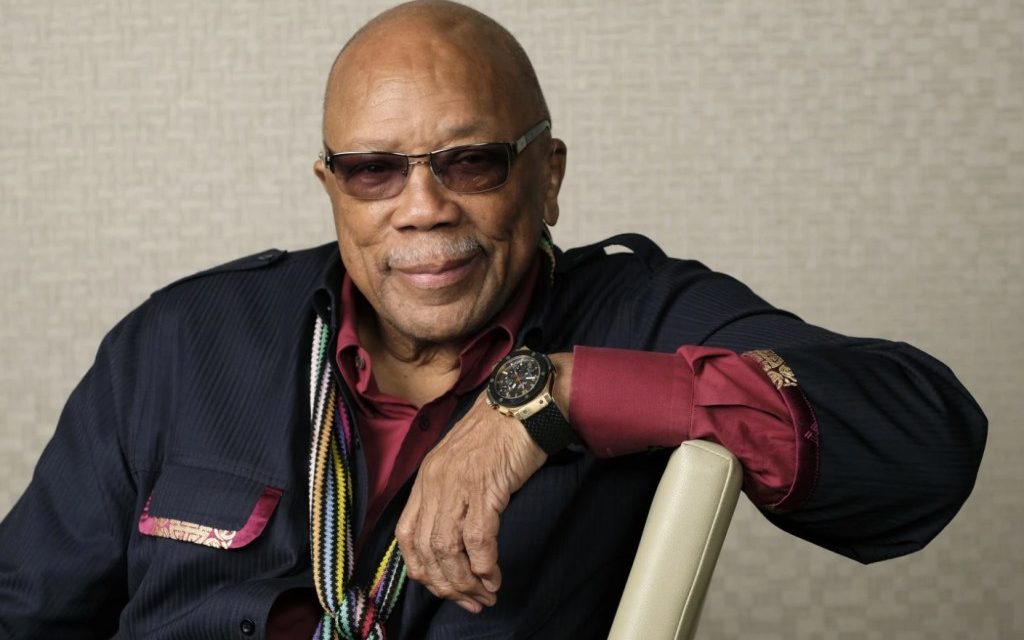By Aria Brent
AFRO Staff Writer
abrent@afro.com
Music fans far and wide are mourning the death of legendary producer, composer and arranger, Quincy Jones’ death.
Reports of Jones’ death came out on the evening of Nov. 3 from his publicist, Arnold Robsinson. The music icon, whose contributions spanned over seven decades, died at his Bel-Air home at the age of 91.

“Tonight, with full but broken hearts, we must share the news of our father and brother Quincy Jones’ passing,” the Jones family said in a statement, sent to the Associated Press. “And although this is an incredible loss for our family, we celebrate the great life that he lived and know there will never be another like him.”
Known for his genre-defying work that included jazz, pop, rhythm and blues and hip-hop, Jones leaves behind a monumental legacy.
Born on March 14, 1933, in Chicago, Ill., Quincy Delight Jones Jr., moved to Seattle at age 10, where he first picked up the trumpet. His undeniable talent led him to study music at Berklee College of Music before launching into a career that would make him one of the most respected and decorated musicians in the music world. His early work as a jazz arranger for talents like Lionel Hampton and Dizzy Gillespie set the stage for his career as a giant in jazz and a plethora of other music genres.
In the 1960s, Jones made history as one of the first Black executives at a major American record label, Mercury Records. His presence there opened doors for countless artists of color. As a producer he helped create timeless albums for musical greats such as Aretha Franklin, Frank Sinatra and Ray Charles. However, it was his collaboration with Michael Jackson that would impact the trajectory of the music industry for years to come.
Jones produced Jackson’s fifth studio album, “Off The Wall” in 1979 and followed up with “Thriller” in 1982. The nine-track album would go on to become the best-selling album of all time. Following the success of “Thriller,” Jone’s also helped produce Jackson’s seventh studio album, “Bad.” These albums not only pushed the boundaries of pop music, but also broke down racial barriers in the music industry.
The 28 time Grammy winner’s versatility went beyond the recording studio. He composed a total of 33 film scores including movies like “The Wiz,” “In the Heat of the Night” and “The Color Purple.” His creativity spread to television and print as well when he worked as a producer on “The Fresh Prince of Bel-Air” and founded Vibe magazine in 1990.
Recognized for more than his professional accolades, Jones was celebrated for his philanthropy, commitment to humanitarian causes and his work as a mentor to younger generations. His passion for youth and arts education led him to found the Quincy Jones Music Consortium to promote music education in public schools.
In 2013, he was awarded the Rock and Roll Hall of Fame’s Ahmet Ertegun Award, solidifying his status as one of the most influential figures in music history.
Jones’ work will continue to resonate and influence future generations to create beyond the boundaries that’ve been set. His legacy stands as a testament to the power of creativity and an unwavering commitment to excellence in all he produced.
The post Legendary music producer Quincy Jones dies at 91 appeared first on AFRO American Newspapers.











